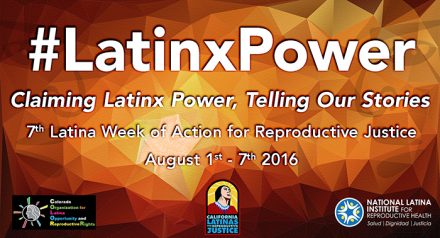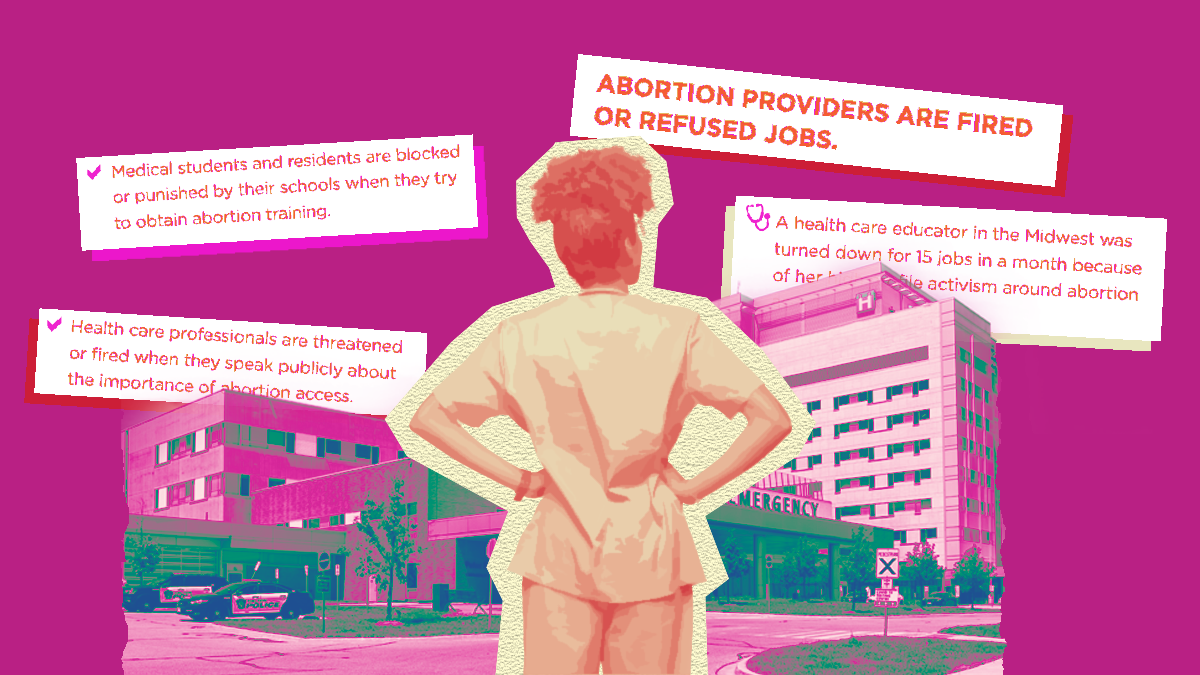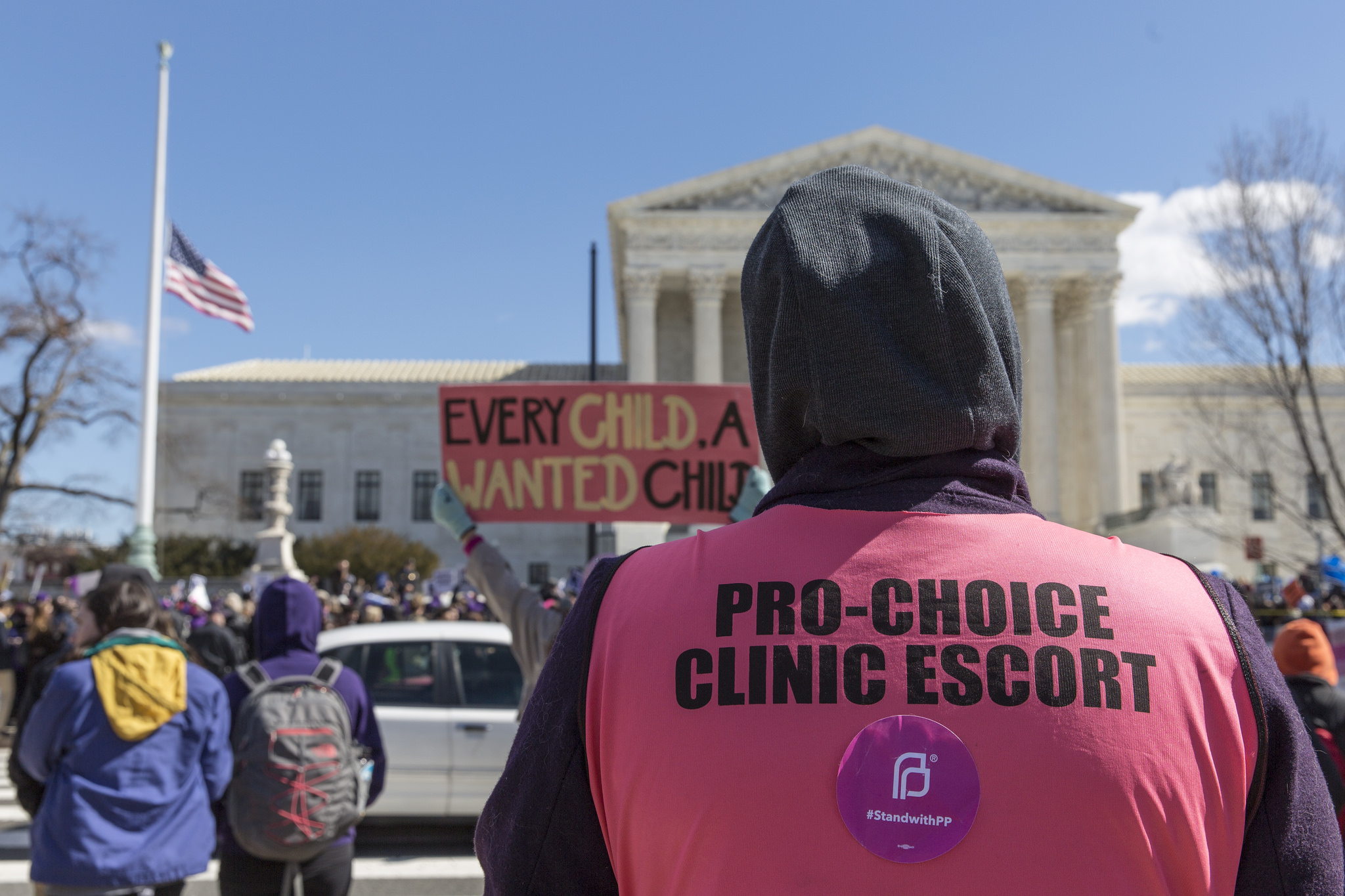Latinas Need Reproductive and Economic Justice

 When I was growing up in a rural town in South Central Texas, the small hospital that served our county didn’t offer maternity care. Pregnant women had to drive 35 miles north to San Antonio. As we join in the 7th Annual Latina Week of Action for Reproductive Justice, I can’t help but think back to what it was like growing up in an economically depressed area with so few resources.
When I was growing up in a rural town in South Central Texas, the small hospital that served our county didn’t offer maternity care. Pregnant women had to drive 35 miles north to San Antonio. As we join in the 7th Annual Latina Week of Action for Reproductive Justice, I can’t help but think back to what it was like growing up in an economically depressed area with so few resources.
During this week, we call upon policy makers and communities to support policies and programs that will allow Latino/a families to make the decision of whether and when to have children with dignity and self-determination. This means access not only to reproductive health care but also safe neighborhoods, quality schools, and jobs that allow us to support ourselves and our families.
Barriers to Reproductive Justice
Many of those things were sorely lacking in my primarily Latino/a hometown. Our neighborhoods might have been safe but the few jobs available were low-paying and didn’t come with benefits. And although our teachers worked hard, the school facilities desperately needed improvement. In elementary school, the teachers would leave the windows wide open to try to cool off the unairconditioned classrooms in the 90 plus degree heat. Many of the windows didn’t have screens so gnats would sometimes fill the classroom, swarming around our heads as we tried to work.
Access to reproductive health care, particularly for teenagers was nearly impossible. I was a bright, fairly self-sufficient teenager but had no idea how to get prescription birth control. The county had neither a Planned Parenthood nor any form of public transportation, leaving those without cars to rely on friends and family to get to a doctor or really anywhere. Living in town, I had things better than others. Many of my friends and family lived down long country roads or in one of the tiny towns of only 300 and 400 people that dotted the county. Simply getting to the pharmacy could be challenging.
Today, that little town is booming. It sits on the Eagle Ford Shale and is a hotbed of hydraulic fracturing, aka “fracking” activity. It’s grown from a population of around 7,000 when I was a teenager in the 1990’s to almost 14,000. There are stores and restaurants now. The schools have been updated and airconditioned. New facilities have been added. The South Texas Regional Medical Center, which includes maternity and other specialty care, opened in the neighboring town.
But many problems remain. Almost 20% of the population still lives in poverty and almost one-quarter of the people under the age of 65 are uninsured. And despite the growth, there remains no public transportation. The large trucks and equipment used in fracking have destroyed many of the local roads which were not built to handle such heavy traffic.
Fracking also creates dangerous pollution and drains needed water supplies. Those living or working close to wells are at risk for developing serious health problems, including respiratory problems, birth defects, blood disorders, cancer, and nervous system impacts. When some Texas communities tried to ban fracking within city limits, the state legislature passed a law prohibiting local communities from regulating oil and gas extraction.
The burden of this pollution falls most heavily on people of color and Latino/as in particular. Communities located on the Eagle Ford Shale with populations that are 80% or more people of color are twice as likely to be located near a wastewater disposal well than communities where people of color make up only 20% of the population. The vast majority—83%— of the people of color living within three miles of a wastewater disposal well are Latino/a.
The job growth brought on by fracking has also benefited men more than women. Although many of the oil jobs pay well, the field remains male dominated. Most of the remaining job growth has been in the service sector—minimum wage jobs that don’t have benefits. I used to work at a Dairy Queen outside of town and we would get our schedules a week in advance. I only worked during the summers and even then it could be challenging for me to make appointments around the ever changing schedule. Most of my co-workers were mothers, juggling child care and household responsibilities. I imagine things are even worse today, as new technology has allowed employers to adjust schedules at the very last minute leaving many hourly workers struggling with constantly changing work hours.
Supporting the Call for Reproductive Justice
Because reproductive justice requires access to reproductive health care and also a society that truly supports people’s decision to have children, not to have children, and to raise the children they do have in healthy and safe environments, we are calling on policy makers to support a broad range of policies and programs. Policy makers must support access to birth control and abortion, comprehensive sex education, fully funding schools, investments in infrastructure including public transportation, environmental protections, child care, paid leave, an increased minimum wage, and fair scheduling practices, to name just a few of the policies that Latinas—and all people—need.




